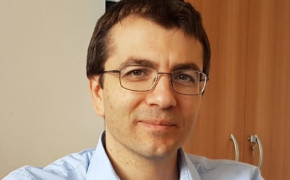A tool to support decision-making in energy infrastructures projects
In its aim to decarbonize the majority of its electricity sector by 2050, the European Union has set ambitious targets for the implementation of renewable electricity sources, which consequently creates a growing need for grid extension and reinforcement. However, many existing planning procedures are hindered by stakeholder opposition to grid extension. In fact, building new grid infrastructures implies a multiplicity of risks, costs, and benefits, unevenly distributed among stakeholders, the population and the environment. This asymmetric distribution often resulted in a strong local opposition, generating further difficulties to the economic and technical complexities.
The project INSPIRE-Grid investigated and experimented modalities for stakeholder engagement in projects of electric transmission grid expansion, in order to effectively manage conflicts and support public decision-makers and Transmission System Operators (TSOs) in the authorization process.
A Multi-Criteria Decision Aiding (MCDA) methodology was developed to consistently assess and compare all the negative impacts and benefits of a proposed infrastructure and its practicable alternatives, and to manage the conflicts.
Resources needed
The overall project costed € 3 461 721; the development of the MCDA regards only a part of the activities
Evidence of success
The MCDA tool was applied for local actors’ engagement in two real cases of grid development in Norway with the TSO Statnett and in a validation workshop in the UK with the TSO National Grid.
Through questionnaires, the following was elicited: a proper use of MCDA can foster stakeholder participation; MCDA can be used to properly manage conflicts and support the choice of a good alternative, possibly reducing times times and costs necessary to reach a satisfactory decision.
Difficulties encountered
Some public servants and TSOs project managers were reluctant to increase the level of public engagement beside the standard procedures (eg. EIA): they feared to lose control of the final outcome / were not open to new methods / were afraid of changing the procedures set by the law.
Potential for learning or transfer
Public opposition is one of the main non-technological barriers to the development of RES and in particular to the therefore necessary expansion of the electricity grid. There are several projects across Europe that have been facing delays or have been terminated.
The MCDA methodology defined and used in the INSPIRE-Grid project might be interesting to other regional/national authorities looking for a way to improve the planning and permitting procedures.
Please login to see the expert opinion of this good practice.
Tags: Citizens, Energy, Environment, Infrastructure, Planning








